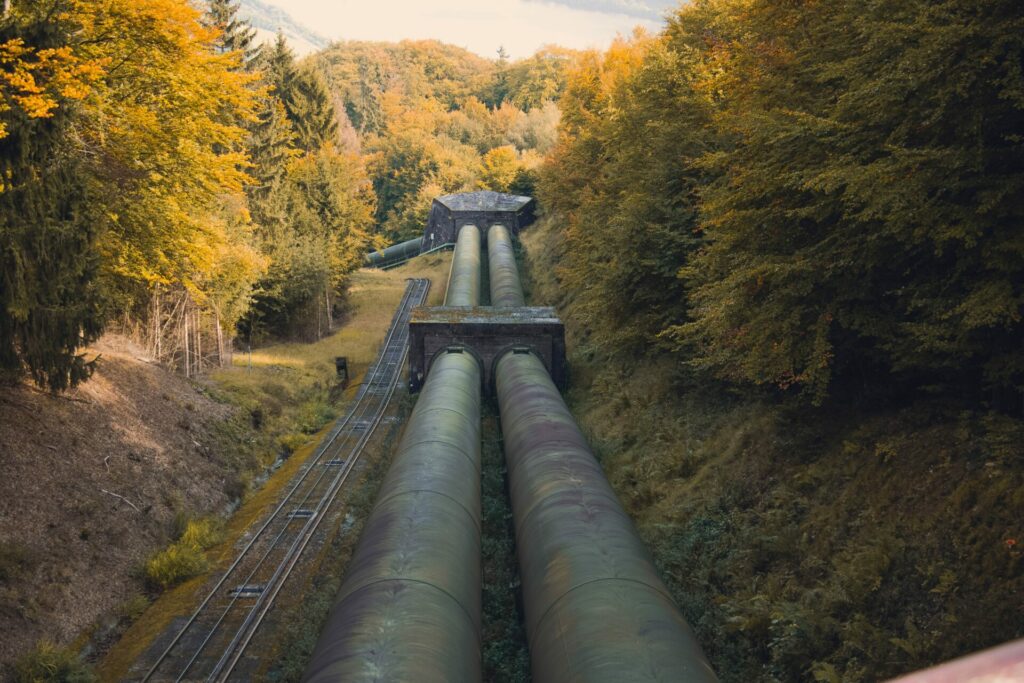Sharp declines in gas and electricity prices over the past year suggest that Europe's energy crisis may finally be over, according to a leading Belgian energy expert.
Damien Ernst, a professor of electrical engineering at the University of Liège, recently wrote on X (formerly Twitter) that the fall in energy prices will also likely "kill" Europe's high inflation rate.
"Gas and electricity prices are almost returning to pre-crisis levels in the EU for futures products," Ernst stated. "This should kill European inflation, which was mainly driven by energy."
Ernst's analysis is supported by falling gas prices, which now are just over €32 per megawatt hour (MWh) on the Dutch Title Transfer Facility (TTF), Europe's most commonly used price benchmark. This is approximately a third of what it was this time last year and 10% less than in January 2022 – before Russia's invasion of Ukraine destabilised natural gas supplies and triggered an energy crisis.
Similarly, maximum wholesale electricity prices in the EU fell to €138.19 per MWh in November, the last month for which there is available data. This is just over half the cost in November 2022 and 2021.
The decline in energy prices has, in turn, put the brakes on Europe's inflation crisis. Eurozone inflation fell to 2.4% in November – only fractionally above the ECB's 2% target rate and well below October 2022's peak of 10.6%. Belgium's inflation rate is currently negative.
Ernst told La Libre that European energy prices are now comparable in real terms to what they were a decade ago: "If we count an inflation rate of about 25% since 2014, when prices were around €24 to €26 per MWh, today's €32 have the same value. We must not forget that between 2018 and 2020, we enjoyed extremely low prices. We are paying the right price for gas today and the 'crisis' is really over."
'Many industries have closed'
Ernst attributed the price decline to various factors, including favourable weather and increasing energy efficiency. More worryingly, however, he suggested that the decrease is also partially a consequence of Europe's growing deindustrialisation.
"Industrial demand is not picking up despite falling prices," he said. "In Europe, many industries have closed. The best example is the nitrogen fertiliser sector, which has relocated its production following the price spike. We probably won't see them coming back."
Ernst also warned that an upswing in prices could re-occur if there is colder weather over the coming months or if there is an escalation of the ongoing conflicts between Russia and Ukraine or Israel and Hamas.
"The geopolitical risk still exists, in addition to the risk of having a big cold snap that revives consumption. But if this does not materialise we can still see prices falling and going below €30 in the coming weeks.”
Related News
- 'Europe can manage': Leading investment firm dismisses deindustrialisation fears
- 'Reasonably reassured': Analysts do not expect Belgian winter energy crisis
Interestingly, Ernst's remarks contrast markedly with comments he made less than two months ago when he claimed that Europe "remains [in] a crisis" and pointed specifically to the disintegration of Europe's industrial sector as evidence of this.
"Before, we were facing an 'extra-crisis'," Ernst told Le Vif in November. "Now we just have a crisis with prices twice as high as the average. This remains a crisis. We can also see it in the evolution of the European industrial sector, which is suffering a lot compared to the United States."
He added: "I would not say that the crisis is over, it is more nagging. We are no longer in an acute phase, we are in a chronic phase which nevertheless remains impoverishing for citizens and companies."

